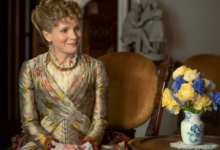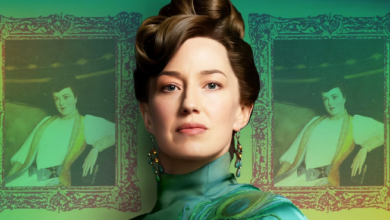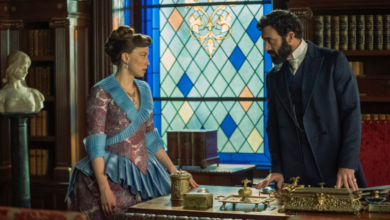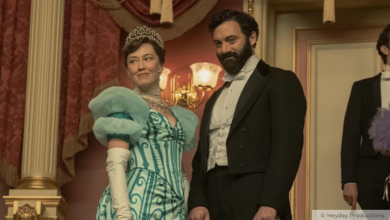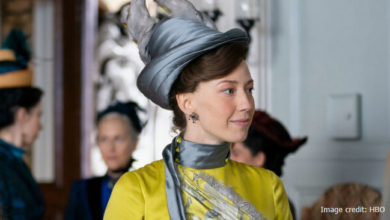The Gilded Age’s Carrie Coon says Bertha wants to save Gladys from herself

The actress talked to EW’s “The Awardist” podcast about Bertha’s plan to marry Gladys off to the Duke.
The Gilded Age fans wondering how Bertha Russell (Carrie Coon) won over the Duke of Buckingham (Ben Lamb) in the season 2 finale — and what it means for her daughter, Gladys (Taissa Farmiga) —need only look to history for the answer.
Speaking with Entertainment Weekly’s The Awardist podcast, Coon says her research into Alva Vanderbilt — the wealthy socialite and suffragist who inspired her Gilded Age character — included an autobiography written by Vanderbilt’s daughter, Consuela. “It’s about the very thing that Gladys is struggling with in the story,” says Coon. “Her mom married her off to a Duke against her will, and made her break up with a man she was in love with.” Alva “came to regret” her decision, notes Coon, adding, “I think that’d be interesting territory for Bertha too, going forward.”
For now, though, Coon says Bertha is intent on a marriage between Gladys and the Duke — despite her daughter’s obvious interest in another young man, Bill Carlton (Matt Walker).
“Bertha does not believe that Gladys knows what’s best for herself,” explains the actress. “She thinks Gladys is naive about the way the world operates and that she’s not equipped to not only marry well, but then protect the family fortune for her own children — the legacy, if you will. Bertha believes that everything she’s doing, she’s doing out of love for her daughter, including this move of setting her up with the Duke…. I don’t think she sees anything wrong with what she’s doing.”
Coon has two young children with her husband, playwright Tracy Letts, and she understands Bertha’s desire to protect Gladys. “The world is set up for my son’s success. My son is a young white man. He’s very attractive. He’s coming up with more money than my husband or I ever had, and he’ll probably be fine,” she says. “My daughter, however, is growing up in a world where, for example, her rights to bodily autonomy are geographical in the United States. I understand the tension of wanting to circumvent issues for your children, even though the only way for them to learn is by going through a challenge. I do relate to Bertha in that way. I wouldn’t necessarily go about it the same way, but I don’t think it’s evil. She’s just doing the best she can with what she’s been given.”
